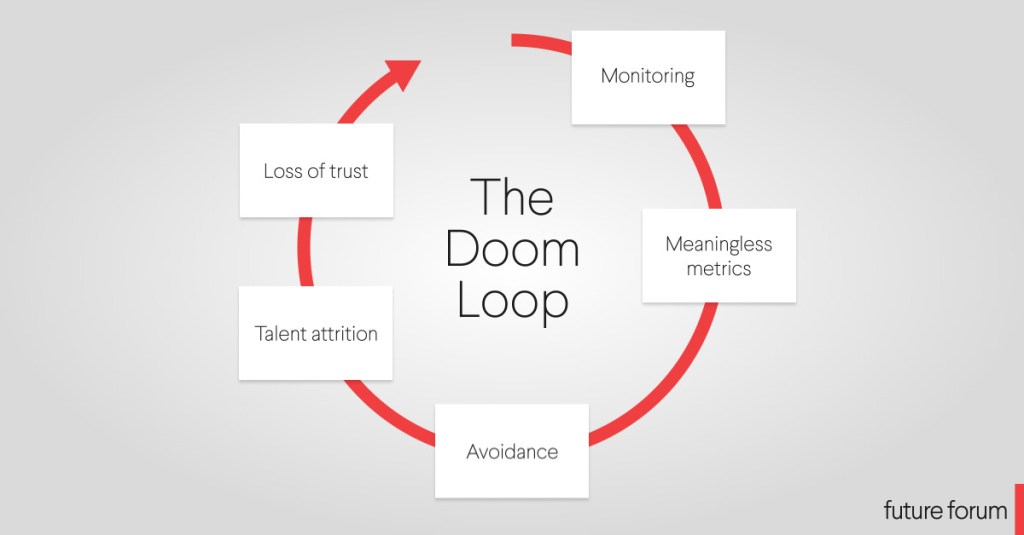

Posted October 5, 2021 by Helen Kupp
Measuring success in a digital-first world
Posted October 5, 2021 by Helen Kupp
Attendance. Hours logged. Speed of response. Back when the work day occurred in cubicles, this kind of over-the-shoulder employee monitoring was de rigueur. For workers, getting ahead too often meant being the first to arrive at the office and the last to leave, independent of how much work was actually getting done.
When the pandemic forced companies to go remote overnight, leaders scrambled to adjust. And many struggled. “WFH is corroding our trust in each other,” trumpeted Harvard Business Review. Remote surveillance software like Sneek, Intergard, and Hubstaff saw record usership and profit, as bosses sought digital tools to apply the old standards of in-office monitoring to our new work-from-anywhere world.
Meanwhile, employees began to vote … with their feet. Between April and June of 2021, 11.5 million American workers quit their jobs, and this “great resignation” groundswell shows no signs of slowing. New data from the Future Forum Pulse reveals more than half of workers across the globe—57%—are open to looking for new opportunities in the coming year, and key groups such as employees of color and working parents are even more likely to make the jump.
As leaders begin to roll-out new workforce policies, concern about employee retention is the number one driver influencing their decisions. But leaders who want to hold on to top performers need to stop looking over their team’s shoulders and start investing in cultivating their trust—and deepening their engagement.
“For too long, we’ve let managers rest on the wrong type of measurements—often at the expense of employee engagement and the literal expense of bottom-line business results,” says Brian Elliott, Executive Leader of Future Forum. “To achieve success in our digital-first world, managers need to stop focusing on inputs and start focusing on measuring outcomes.”
This playbook is for leaders who want to learn more about:
Expectations for knowledge workers are clear: employees want flexibility. Future Forum data shows that when it comes to employee satisfaction, flexibility is second only to compensation. Seventy-six percent of knowledge workers in our global survey report they want flexibility in where they work. And 93% want flexibility in when they work.